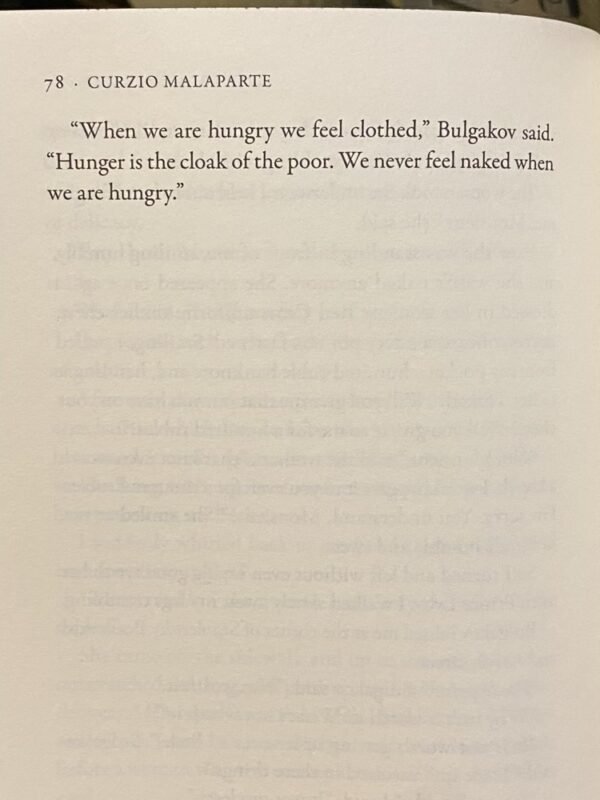Bibliographia
Title: The Kremlin Ball
Author: Curzio Malaparte
Translator: Jenny McPhee
Publisher: New York Review Books
Publication Year: 2018
ISBN: 978-1-68137-209-9
xvi, 223 pages; 21 cm.
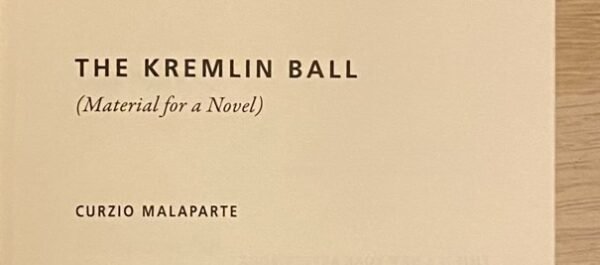
The author, Curzio Malaparte (9 June 1898 – 19 July 1957), was born Kurt Erich Suckert, but after 1925 identified himself as Malaparte, a surname playing on Bonaparte.
The Kremlin Ball was never completed and is really just the pieces of an unfinished work. As such, it has parts that are repetitious, undeveloped.
It largely addresses time Malaparte spent in Moscow during the late 1920s. He spends time with many Muscovite intellectuals, many of whom will not survive the purges. Among those, perhaps the most well known is Mikhail Bulgakov (well-known to me, I suppose, as the writer of The Master and the Margarita, 1967). But there are appearances of many other interesting historical figures, inlcuidng Anatoly Lunacharsky, Stalin, and Vladmir Mayakovsky.
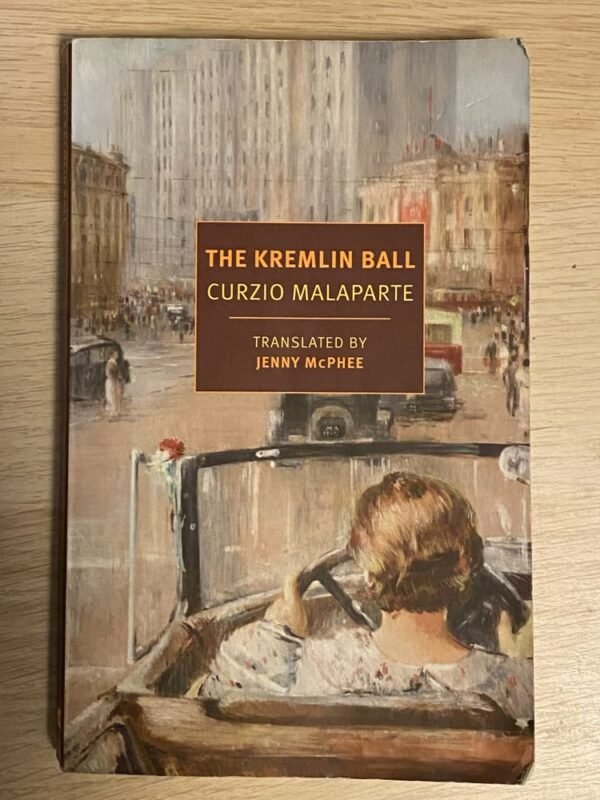
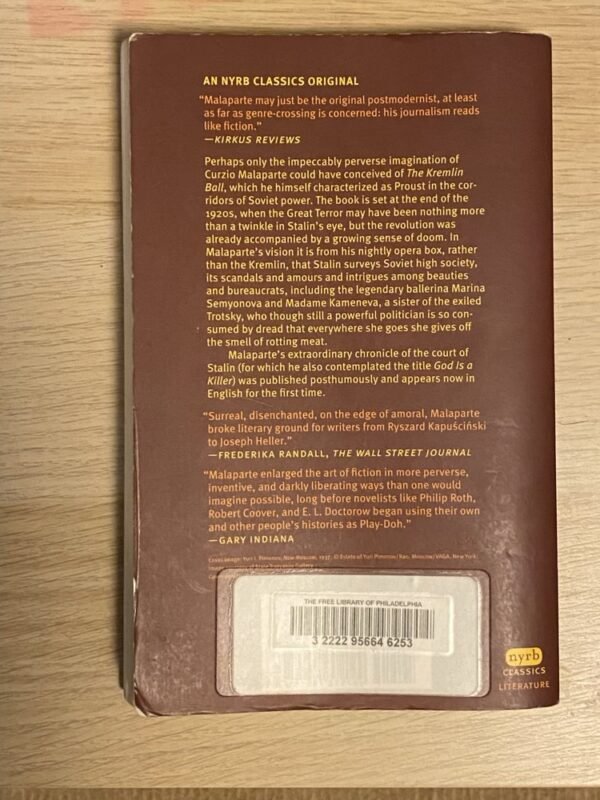
This book was first published in English in 2018 by New York Review Books press, which you may know is related to the New York Review of Books, a literary — literary? — journal. More like a literature journal. The book was translated by Jenny McPhee.
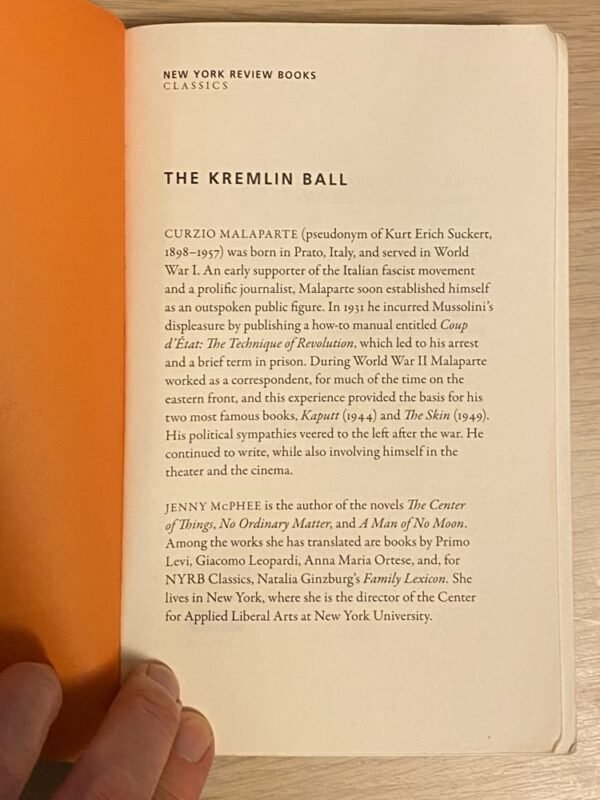
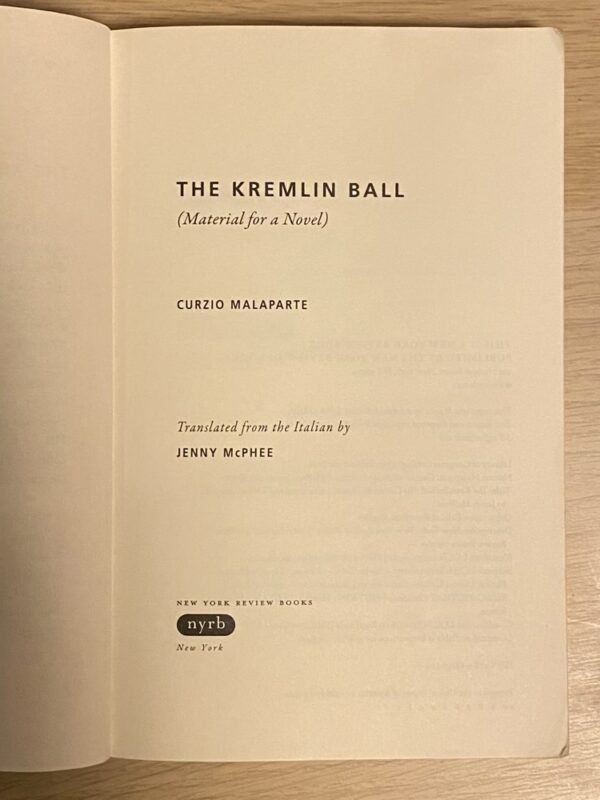
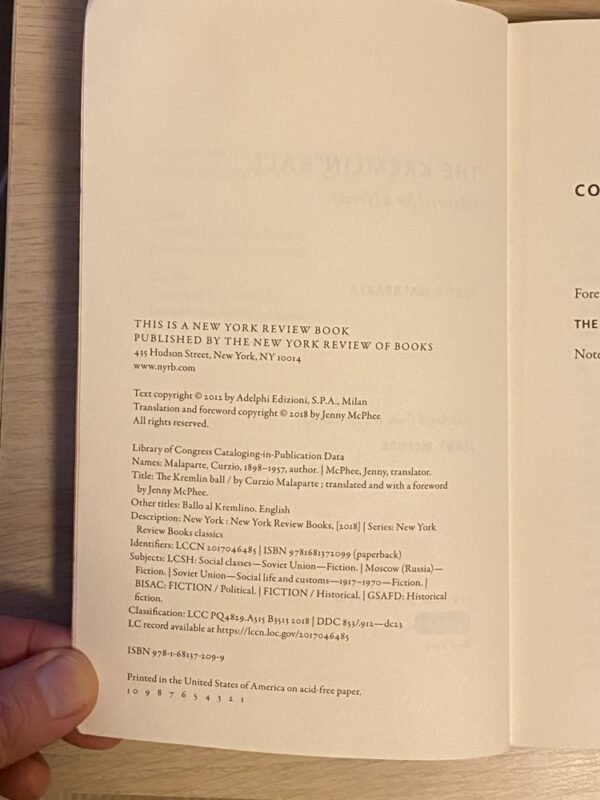
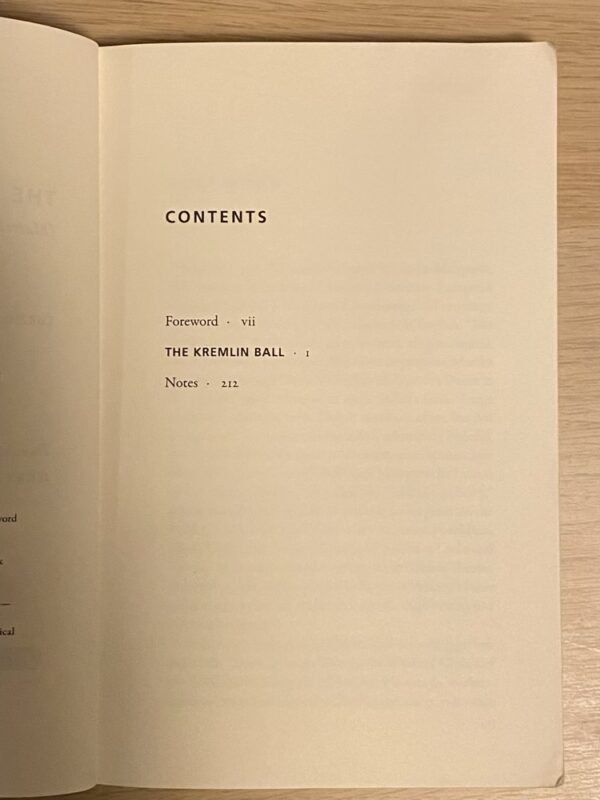
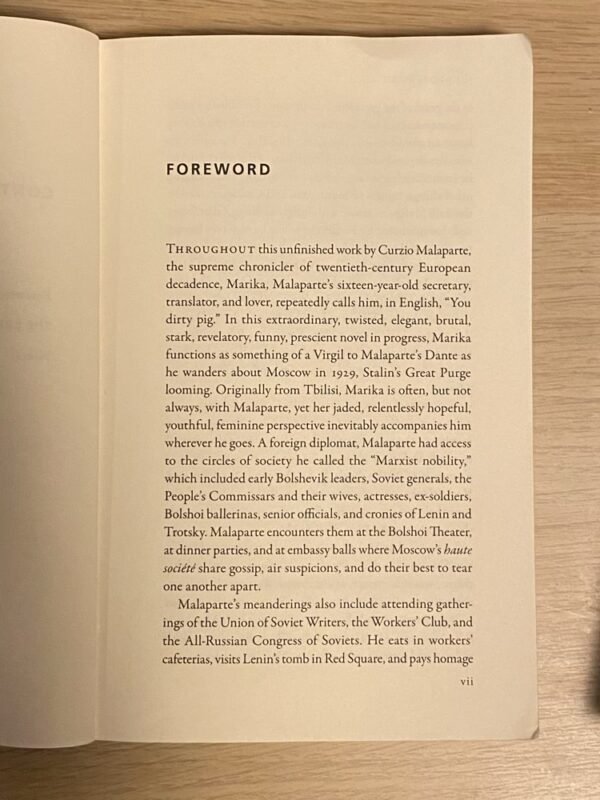
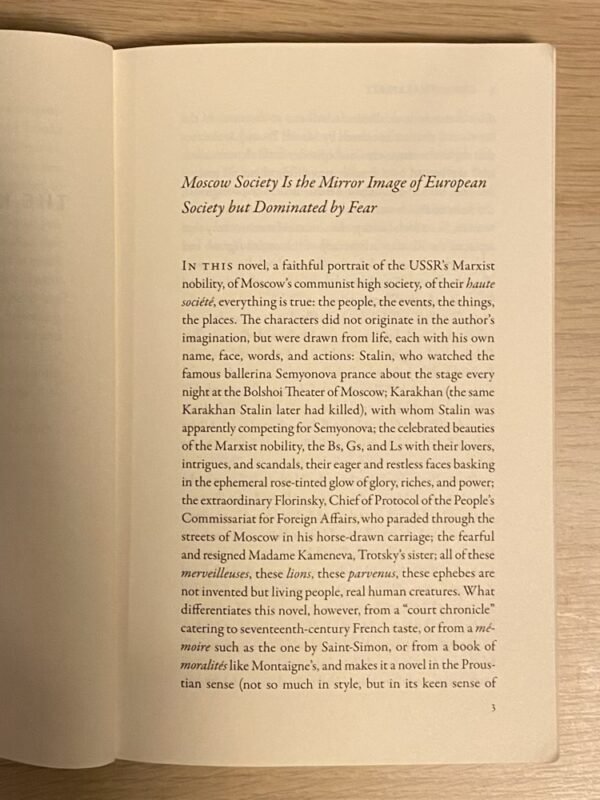
This is a strange, sort of wonderful book. The history of the author — a pre-war dalliance with Mussolini and Italian fascism — I know not what to do with.
But his view of the early Soviet Union is not cheerily blind. He already touches on concerns. Even if primarily his encounter with the U.S.S.R. is limited to the literary realm.
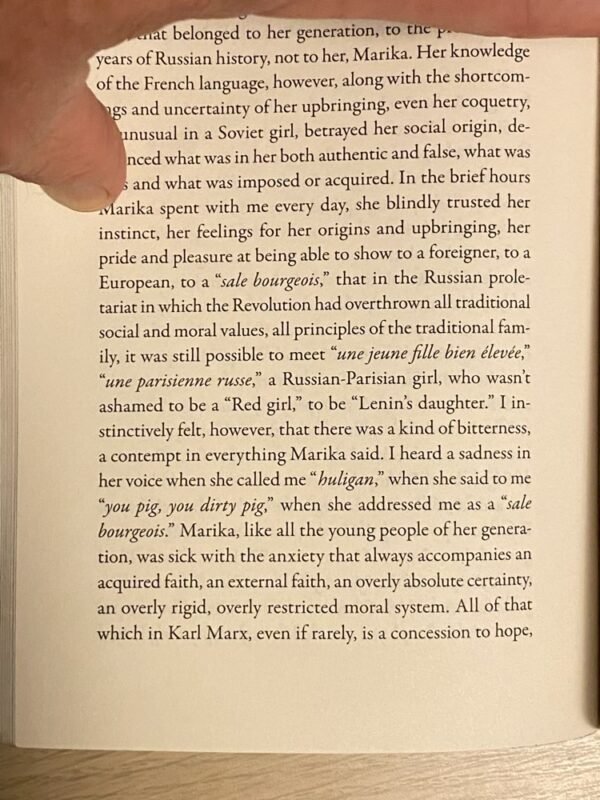

The above is a lovely, very typical passage. At this point it describes the way that his female companion Marika redresses him, repeatedly.
At no point is he irritated by her complaint. He bears the emotional alacrity to surf over these judgments, making nothing of them. If not to make them into opportunities for reflection.
That her attitude exemplifies a unique historical moment and the uncertainty characterizing it:
[…] an acquired faith, an external faith, an overly absolute certainty, an overly rigid, overly restricted moral system.
And then this line, supposedly from Bulgakov.
